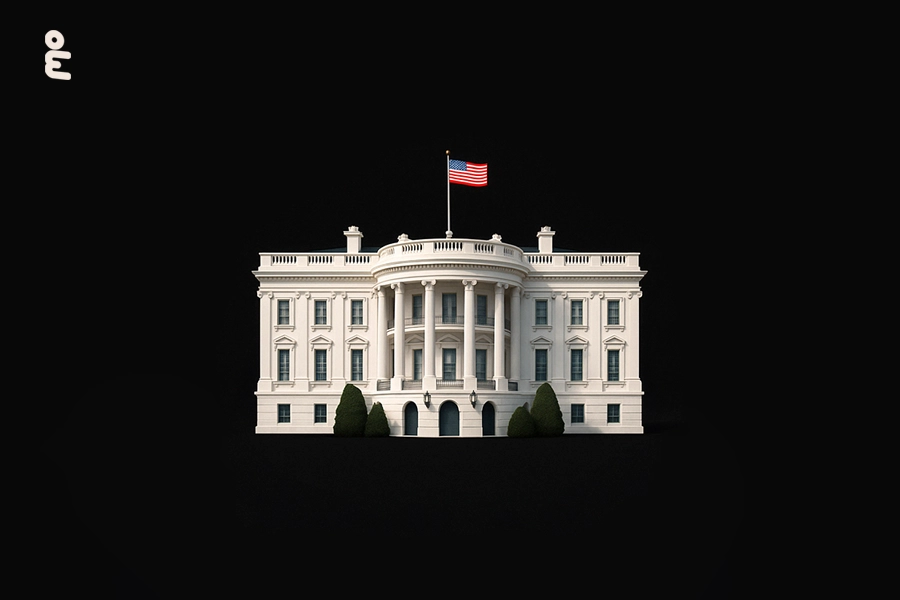Quiz: Which US President Are You?

Did you know that each of us carries traits of great leaders within? The history of the United States was shaped by remarkable individuals whose characters and decisions formed the destiny of an entire nation. Have you ever wondered which American president might be your spiritual double? Our quiz “Which US President Are You?” offers a glimpse into the depths of your own personality through the prism of historical figures who changed the course of American and world history.
How Presidents Shaped the Nation: A Brief History
The history of the United States is inextricably linked with the personalities of those who stood at the helm of the state. From the founding of the young republic to its transformation into a world superpower – each turning point in American history was accompanied by the strong-willed decisions of outstanding leaders. The presidency in the United States is much more than just the highest government position; it is a unique type of leadership that combines political wisdom, moral compass, and the ability to transform society.
The Founding Fathers laid the foundation of the American state, Civil War leaders preserved its unity, reformers of the early 20th century modernized the economy and politics, and modern presidents helped America adapt to the challenges of globalization and the digital era. Each of these stages required a special set of personal qualities and management style, reflecting the spirit of their time and the needs of the nation.
What Is This Quiz About?
Our quiz is not just entertainment, but an engaging tool for self-discovery. Based on your answers about preferences, reactions to various situations, and value orientations, the algorithm will determine which iconic US president matches your psychological profile.
The quiz questions touch on various aspects: decision-making style, attitude toward conflicts, communication methods, response to crises, and even your ideas about an ideal society. All these factors form a unique portrait of your personality, which is then compared with the psychological profiles of American leaders.
The result is not only the name of a president but also a detailed analysis of your character, strengths, potential growth points, and even possible career paths. The quiz will help you see yourself in a new light and, perhaps, reveal qualities you weren’t even aware of.
Which Presidents You May Get in the Quiz Results
Our quiz includes five bright and characteristically different US presidents, each of whom embodies a unique leadership style and set of personal qualities. Find out which of these outstanding historical figures you share character traits and problem-solving approaches with.
George Washington
If the quiz identifies you as George Washington, it means you possess a rare combination of principle and pragmatism. Like the first US president, you value honesty and fairness above all, are ready to take responsibility in difficult situations, and know how to unite people with different views to achieve a common goal.
Washington, who refused a lifetime presidency, demonstrated that a true leader knows when to step down. This wisdom and selflessness make you a person trusted by those around you. You are not a revolutionary, but a reliable builder laying a solid foundation for the future.
Barack Obama
If you received the result “Barack Obama,” you are distinguished by eloquence, diplomacy, and the ability to inspire others to change. Like the 44th US president, you know how to find compromises and see opportunities where others see only obstacles.
Your strength lies in the ability to unite different perspectives and create an inclusive environment where everyone feels heard. You believe in gradual but steady changes and are ready to overcome resistance to achieve ambitious goals. At the same time, you always remain open to dialogue and new ideas.
Abraham Lincoln
The result “Abraham Lincoln” speaks to your unwavering moral fortitude and willingness to stand up for your convictions even in the face of the strongest resistance. Like the 16th US president, you combine deep empathy with firmness in making difficult decisions.
Lincoln led the country through the most severe crisis in its history – the Civil War – while maintaining humanity and striving for reconciliation. This ability to preserve humanity in extreme conditions distinguishes you as well. You are ready to fight for justice without compromising your values and respect for opponents.
Donald Trump
If the algorithm compared you to Donald Trump, you possess determination, unconventional thinking, and the ability to draw attention to your ideas. Like the 45th US president, you are not afraid to go against established traditions and are ready to break the rules if you deem it necessary.
Your style is straightforwardness and result orientation. You think in terms of “win-lose” and strive to win in everything you undertake. A business approach to problem-solving and the ability to conduct tough negotiations make you effective in situations requiring quick and radical decisions.
Theodore Roosevelt
The result “Theodore Roosevelt” indicates your inexhaustible energy, passion for adventure, and desire for justice. Like the 26th US president, you combine an active life position with deep intellect and broad horizons.
Roosevelt, known for his antitrust legislation and conservation activities, was able to find a balance between progressive reforms and traditional values. This ability to see different sides of an issue and act decisively but thoughtfully is characteristic of you as well. You are a person of action, unafraid of challenges and ready to fight for what you believe in.
What Else Does Your “Presidential Type” Say About You
Your quiz result is not just an amusing comparison with a historical figure, but also a key to understanding your potential. Each presidential type indicates a certain leadership style that can manifest in various spheres of life – from career to personal relationships.
For example, the “Washington” type may succeed in situations requiring the creation of new systems and establishing rules. The “Lincoln” type is particularly effective in the role of peacemaker and reformer. Those with the “Roosevelt” type will find themselves in active social activities and projects requiring innovation.
Knowing your presidential type gives you the opportunity to consciously develop strengths and compensate for weaknesses. It’s a kind of map of your leadership potential that can help in building a career, developing relationships, and personal growth.
What Traits Make You Similar to a President?
Despite differences in character and political views, all outstanding presidents share certain qualities: determination, strategic thinking, communication skills, and the ability to make difficult decisions under pressure. These qualities are valuable not only in politics but in any sphere of life.
The quiz helps identify which of these qualities are already present in your character and which can be developed. Perhaps you’ll discover that you possess Obama’s diplomacy, Lincoln’s resilience, or Roosevelt’s energy. Or maybe you combine traits of several presidential types, making your personality even more multifaceted.
Of course, being a “presidential type” doesn’t mean you should necessarily go into politics. These qualities are valuable in business, science, art – anywhere that requires making decisions and leading others. Our quiz is an invitation to reflect on your leadership qualities and potential to influence the world around you.
Questions Overview
- Address it methodically with careful planning and consultation with trusted advisors
- Form a team of experts and develop a comprehensive, data-driven approach
- Focus on preserving the essential values while making difficult compromises
- Take immediate decisive action and communicate directly to the public
- Remain above partisan disputes while seeking compromise
- Try to find common ground while standing firm on core principles
- Carefully include diverse viewpoints, even bringing rivals into your team
- Directly challenge opponents and rally public support for your position
- The Constitution
- The Civil Rights Act
- The Emancipation Proclamation
- A landmark business contract
- Extremely important - the foundations we create will guide future generations
- Important, but sometimes precedent needs to evolve with the times
- Valuable, but moral principles sometimes require breaking with tradition
- Often overrated - fresh approaches can lead to better results
- Respected figures from various regions with proven expertise
- Academic experts and seasoned political figures with diverse perspectives
- Political rivals and independent thinkers who will honestly challenge you
- Successful business leaders and loyal supporters who get things done
- Build a respectable nation that avoids foreign entanglements
- Strengthen diplomatic alliances while using soft power influence
- Focus primarily on domestic stability while standing for universal values
- Prioritize American interests and negotiate better deals for the country
- Building a new government from scratch
- Navigating a major economic recession
- Reuniting a deeply divided nation
- Confronting entrenched establishment interests
- Formal, carefully measured, and dignified
- Eloquent, thoughtful, and inspirational
- Simple yet profound, with memorable metaphors
- Direct, unfiltered, and energizing to your supporters
- Classical style with subtle patriotic elements
- Modern but respectful of tradition, with diverse art pieces
- Modest furnishings with meaningful historical documents displayed
- Opulent, with gold accents and personal branding touches
- Setting enduring traditions and standards for the office
- Building coalitions and representing America on the world stage
- Moral clarity during times of fundamental national challenges
- Cutting through bureaucracy to get immediate results
- Sparingly and only after careful consideration of justice and national unity
- Based on systematic review of cases and recommendations from the Justice Department
- Mercifully when it serves a greater moral purpose
- As a powerful tool to correct perceived injustices and reward loyalty
- Military commander
- Constitutional law professor
- Self-taught country lawyer
- Real estate developer and media personality
- Essential for maintaining the dignity of the office
- Important but can be selectively modernized
- Useful but less important than authentic communication
- Can be discarded when it gets in the way of effectiveness
- Respect their authority while working within the system to address the issue
- Publicly disagree but acknowledge the Court's constitutional role
- Reluctantly comply while seeking alternative paths forward
- Directly challenge the Court and rally public support against the decision
- Establishing vital foundations that last for centuries
- Breaking barriers and modernizing America's role in the world
- Preserving the nation through its greatest moral and existential crisis
- Disrupting the political establishment and putting America's interests first






